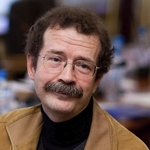‘Over 20% are Presentations by International Researchers’
The Preliminary programme of the XIII International Academic Conference on Economic and Social Development which will take place on April 3 – 5, 2012, has been published on the HSE website. Andrey Yakovlev, Vice Rector of the HSE, told us more about the programme.
The Preliminary programme of the XIII International Academic Conference on Economic and Social Development which will take place on April 3 – 5, 2012, has been published on the HSE website. Andrey Yakovlev, Vice Rector of the HSE, told us more about the programme.
 |
— Dr. Yakovlev, what are your views on the level and quality of the applications for this year’s April Conference?
— When we were selecting the papers, we wanted to present the best possible work at the conference – not only in economics, but also in other disciplines, such as sociology, management, public administration, political science and economic history. In total, there were over 900 applications for the conference this year, many more that last year. As a result, the preliminary programme includes more presentations: over 500. But also, compared with last year, there were more applications which were rejected or put into the reserve pool. This was the result of stricter selection criteria and changes in the evaluation procedure for team applications. Unlike previous years, when individual and team applications went through different procedures, this year team applications were evaluated in the same way as individual ones, which means that specific papers were evaluated. As a result, some applications were not accepted, and in some cases several sessions were combined into one. And, in my view, this is a useful thing. For example, the results of joint research can be better presented as part of one strong session, rather than including two or three weak sessions in the programme.
About half of the papers in the programme will be presented by teachers, staff members and postgraduate students from the HSE, while over 20 percent are papers by international researchers. The largest number of international participants in the programme are from the USA (17 papers), Germany (13), Great Britain and Finland (8 papers each).
Despite the stricter selection criteria, the programme is still large: it includes almost 150 sessions, spread over 23 sections, but fortunately, we still have enough letters of the Latin alphabet. Following tradition, there will be two plenary sessions – in the morning of April 3rd and the morning of April 4th, and I.Shuvalov, A. Kudrin, E. Nabiullina, A. Siluanov, A. Dvorkovich, G.Gref and A. Ulyukaev have been invited. Justin Lin and Otaviano Canuto, Vice Presidents of the World Bank, have also confirmed their participation in the plenary sessions.
— What principles have been used to form the section programmes of the conference?
— While forming the section programme we have focused not on a ‘principle’ but on the results of research projects. Traditionally, the conference programme involves sections dedicated to macroeconomics, theoretical economics, banks and finance, demography and labour markets and sociology. But there are also some new sections which were previously represented on a much smaller scale. In particular, the section on economics and law now includes 10 sessions. This section highlights one of the two special topics of the conference. The first is more political and related to the results of the expert work on Strategy-2020, while the second one is interdisciplinary and related to the phenomenon of trust, bringing together economists, lawyers, social and political scientists to analyze how the development of economy and law generates (or not) trust. My impression is that we shall see many interesting presentations in various disciplinary areas.
The Economics and Law section will involve several sessions dedicated applying the approaches to public development analysis which have been suggested in the book ‘Violence and Social Orders’by Douglas North, John Joseph Wallis, and Barry Weingast, published last year in Russia. In Great Britain the follow up, which considers nine cases from developing countries, is already being prepared for publication. For our conference, North and his colleagues have prepared a special paper summarizing the results of the analysis of these cases, and the Russian version will be published and unveiled at the conference.
Other highlights of the conference include a visit by Kenneth Arrow, Nobel laureate. His honorary report will be dedicated to the information basis of the economy. I’d also like to mention the honorary report which will be given by Professor Jacques-François Thisse, head of the Laboratory of Theory of Markets and Spatial Economics at the HSE Saint-Petersburg Branch.
We are confident that the HSE April Conference will continue to be the pre-eminent event for economic and social sciences in Russia. You can register for the conference until March 9th.
Liudmila Mezentseva, HSE News Service
